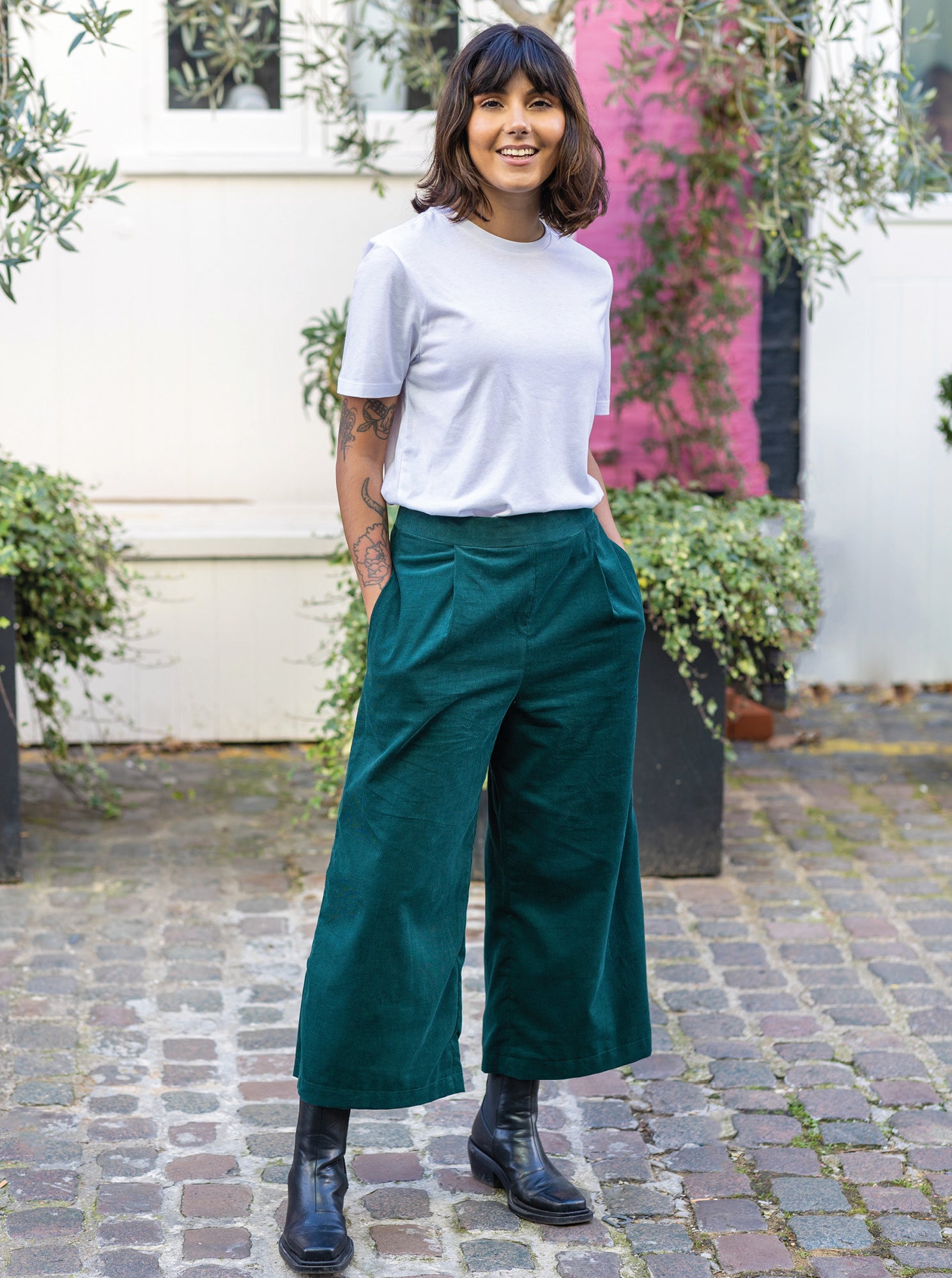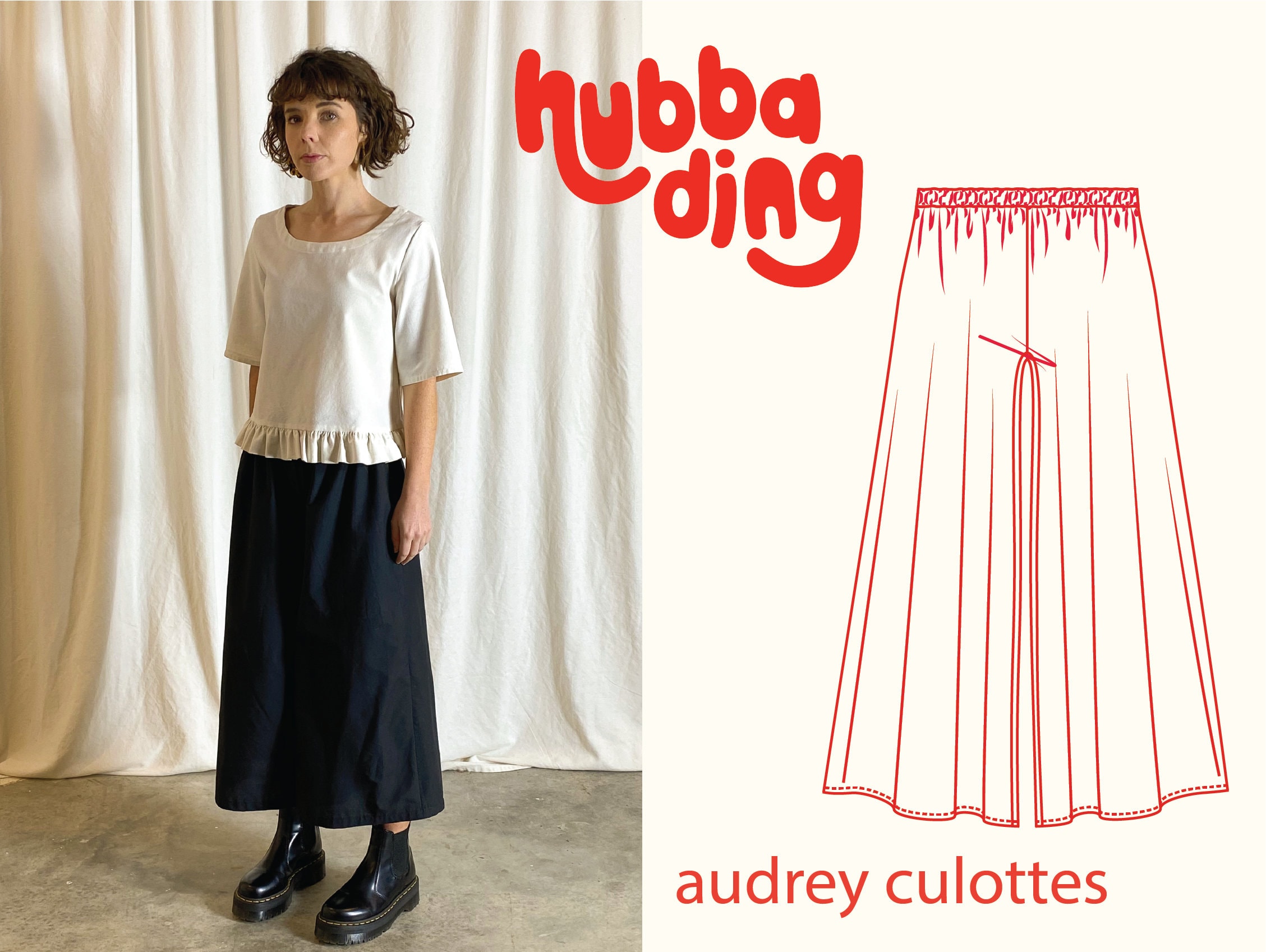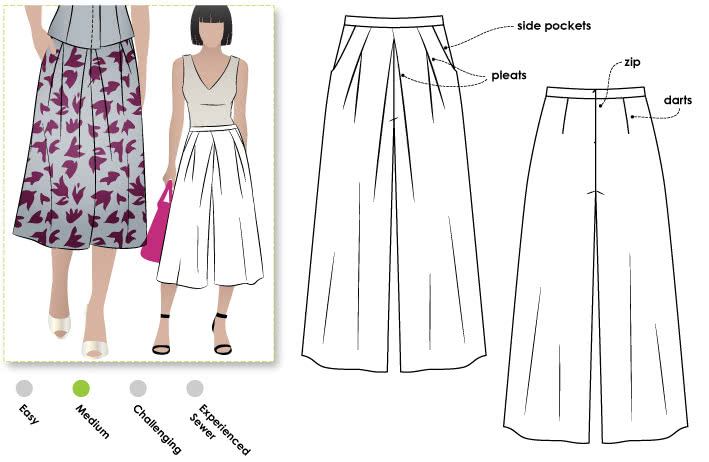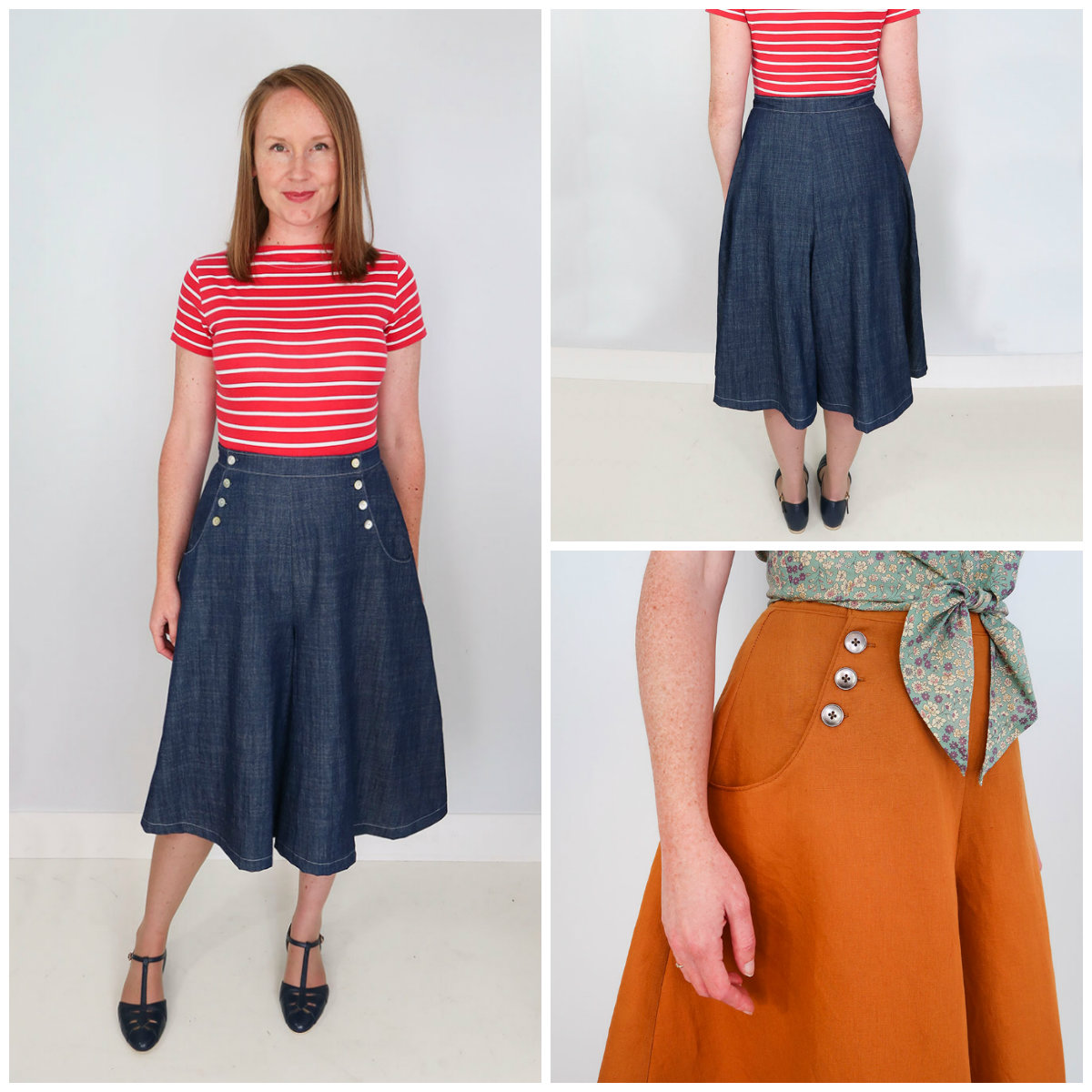Unlocking the Potential of **Culottes Sewing Pattern**
The allure of wide-leg pants, or culottes, lies in their versatility and timeless elegance. Culottes, with their distinctive wide-leg silhouette, have been a staple in fashion since the 1930s. Their unique cut provides a comfortable yet sophisticated look, making them a favorite among fashion enthusiasts. In this article, we delve into the art of sewing the perfect pair of culottes, exploring the nuances of pattern selection, fabric choice, and construction techniques.

Understanding the Anatomy of Culottes
The design of culottes is characterized by a fitted waist, flowing over the hips, and flaring out into a wide leg that typically ends at the ankle or just below. This design not only flatters various body shapes but also offers a sense of freedom in movement. The term “culottes” is derived from the French word “culottes,” which originally referred to a type of garment worn by men in the 18th century. However, the modern interpretation of culottes has evolved to become a staple in women’s fashion.
Choosing the Right Fabric for Your Culottes
The choice of fabric plays a crucial role in determining the final look and feel of your culottes. Lightweight fabrics such as cotton, linen, and silk are ideal for summer wear, providing breathability and comfort. For a more structured look, consider using fabrics with a bit of stiffness like wool or twill. The fabric should drape well without being too heavy, ensuring that the culottes maintain their wide-leg shape without clinging to the body.

Mastering the Art of **Culottes Sewing Pattern**
Sewing culottes begins with selecting the right pattern. A well-drafted pattern is essential for achieving a perfect fit. Many patterns are available, ranging from simple to complex designs. It’s important to choose a pattern that suits your skill level and desired style. Once you have your pattern, carefully cut and pin the fabric, ensuring accuracy in the layout to minimize waste.
Constructing the Culottes: A Step-by-Step Guide
The construction process involves several steps, starting with sewing the crotch seam, followed by attaching the waistband and finishing the hem. Each step requires precision and patience. For instance, when sewing the crotch seam, it’s crucial to ensure that the seams are straight and evenly matched. This not only affects the fit but also the overall appearance of the culottes. As you progress, pay attention to details such as seam allowances and pressing, which contribute to the professional finish of your garment.

Fitting and Adjusting Your Culottes
A proper fit is the hallmark of a well-sewn garment. After sewing, it’s essential to try on your culottes and check for fit. Look for any pulling or gaping in the waist, hips, or crotch area. Make necessary adjustments by taking in or letting out seams as required. Remember, a well-fitted pair of culottes should be comfortable and flattering, accentuating your figure without restricting movement.
Styling Your Culottes for Different Occasions
Culottes are incredibly versatile and can be styled for various occasions. For a casual look, pair them with a simple t-shirt and sneakers. For a more formal event, opt for a tailored blouse and heels. The key to styling culottes is to balance the volume of the lower half with the upper half of your outfit, avoiding overly bulky tops that can make the silhouette appear disproportionate.

Tips from the Experts: Enhancing Your Culottes Sewing Experience
“Sewing culottes is an exercise in patience and precision,” says renowned fashion designer and sewing expert, Claire Shae. Her advice for sewers is to take the time to understand the pattern and fabric before starting the project. She also emphasizes the importance of proper pressing throughout the construction process, which helps in achieving clean lines and a polished look.
Conclusion: Embracing the World of Culottes Sewing
Sewing your own culottes is a rewarding experience that allows you to create a garment tailored to your unique style and fit preferences. By following a well-researched pattern, choosing the appropriate fabric, and paying attention to construction details, you can craft a pair of culottes that are both fashionable and functional. So, gather your materials, select your pattern, and embark on the journey to create the perfect culottes that will elevate your wardrobe.








The article’s tone was very encouraging. It made me feel like even if I make mistakes, it’s all part of the learning process. This is exactly the kind of mindset I need as a beginner.
As a fashion enthusiast, I found this guide incredibly insightful. The detailed steps on constructing culottes make me feel confident to try sewing my own pair. The emphasis on fabric choice and pattern selection is spot on—it’s the key to achieving that perfect fit and style.
I’m a man who enjoys sewing as a hobby, and I found the article’s comprehensive guide to sewing culottes incredibly informative. It’s inspiring to see how versatile and stylish culottes can be.
The section on fabric choice was particularly useful. I’ve always struggled with selecting the right fabric for my projects. The advice on lightweight fabrics for summer and structured fabrics for a more formal look is practical and easy to follow.
The article could have benefited from more personalization tips. Everyone’s body is different, and it would be helpful to have more guidance on customizing the pattern to fit individual needs.
The article’s focus on the emotional value of sewing is very relatable. There’s something special about wearing something you’ve made yourself. It adds a personal touch to your wardrobe.
The step-by-step guide was very detailed, but I wish there were more visuals or diagrams to accompany the instructions. Sometimes, it’s easier to understand with a visual aid, especially for complex steps like sewing the crotch seam.
I’ve always struggled with finding pants that fit well, so the section on fitting and adjusting is a lifesaver. It’s reassuring to know that a little extra effort can result in a perfect fit.
I appreciate the article’s emphasis on comfort. Culottes are not just about looking good; they need to feel good too. The advice on fabric choice and fit ensures that the final product is both stylish and comfortable.
The historical note about the origin of the term “culottes” was a nice touch. It adds a cultural dimension to the sewing process and makes the article more engaging.